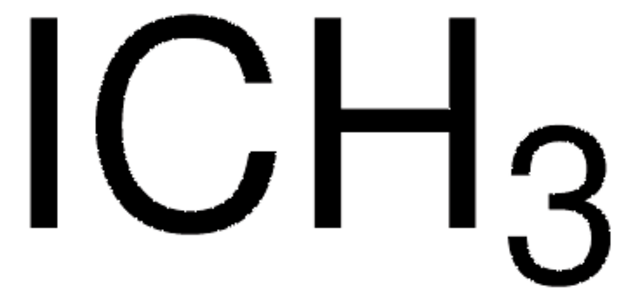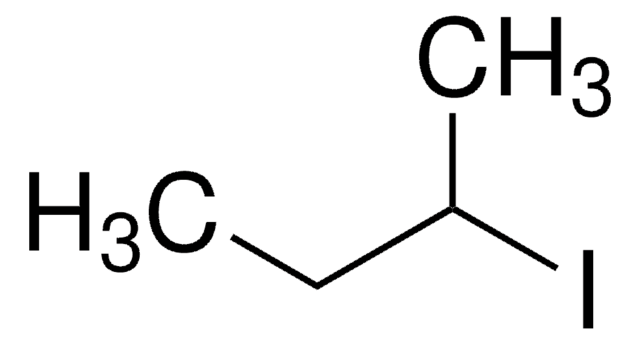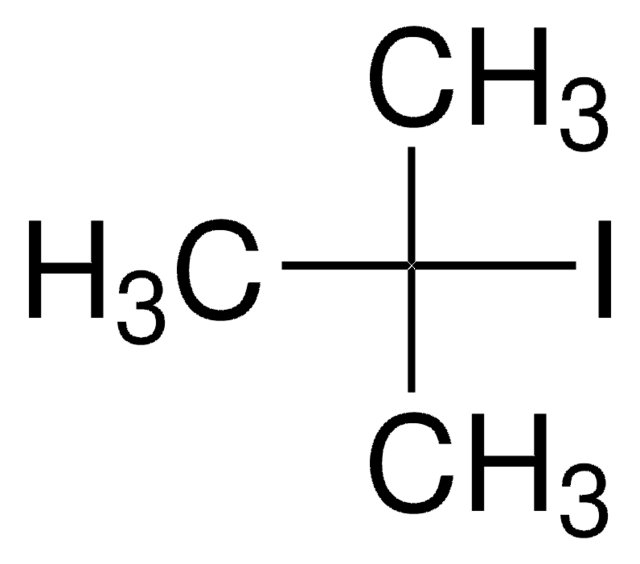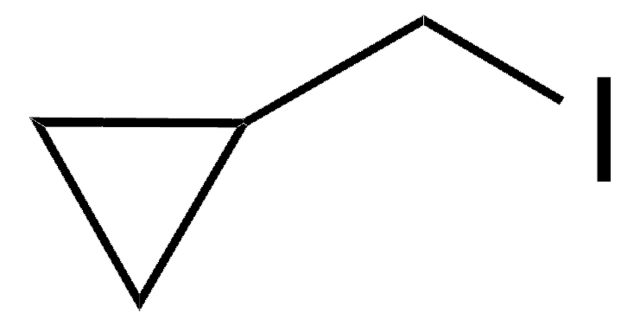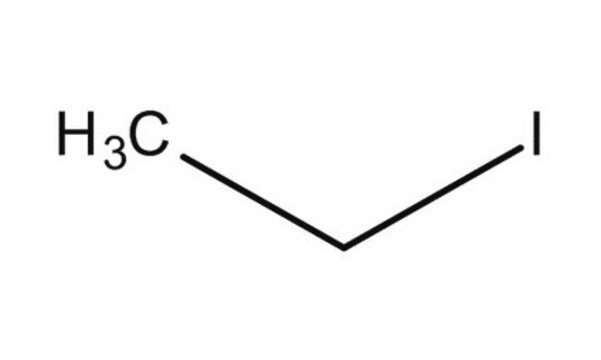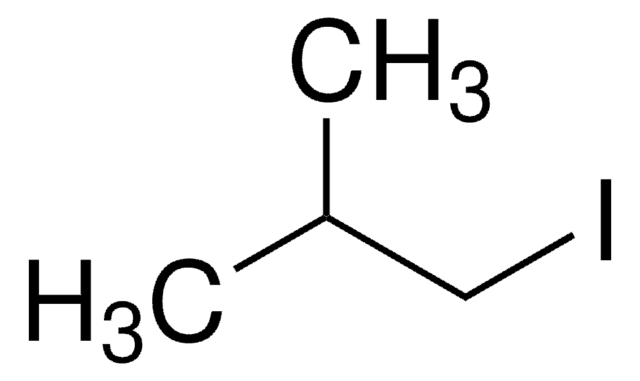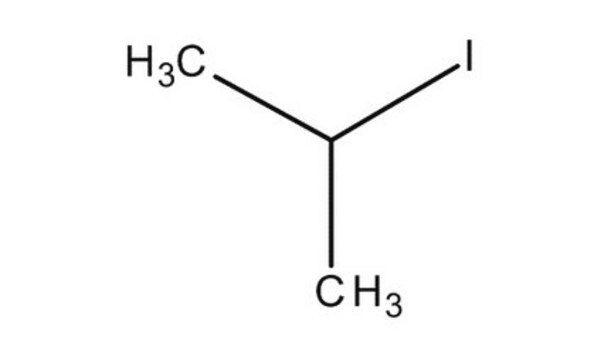About This Item
Recommended Products
vapor pressure
43 mmHg ( 25 °C)
Quality Level
Assay
99%
form
liquid
contains
copper as stabilizer
refractive index
n20/D 1.504 (lit.)
bp
101-102 °C (lit.)
mp
−101 °C (lit.)
density
1.743 g/mL at 25 °C (lit.)
SMILES string
CCCI
InChI
1S/C3H7I/c1-2-3-4/h2-3H2,1H3
InChI key
PVWOIHVRPOBWPI-UHFFFAOYSA-N
Looking for similar products? Visit Product Comparison Guide
Application
Signal Word
Warning
Hazard Statements
Precautionary Statements
Hazard Classifications
Acute Tox. 4 Inhalation - Aquatic Chronic 1 - Carc. 2 - Eye Irrit. 2 - Flam. Liq. 3 - Muta. 2 - Skin Irrit. 2 - STOT SE 3
Target Organs
Respiratory system
Storage Class Code
3 - Flammable liquids
WGK
WGK 2
Flash Point(F)
111.2 °F
Flash Point(C)
44 °C
Certificates of Analysis (COA)
Search for Certificates of Analysis (COA) by entering the products Lot/Batch Number. Lot and Batch Numbers can be found on a product’s label following the words ‘Lot’ or ‘Batch’.
Already Own This Product?
Find documentation for the products that you have recently purchased in the Document Library.
Customers Also Viewed
Our team of scientists has experience in all areas of research including Life Science, Material Science, Chemical Synthesis, Chromatography, Analytical and many others.
Contact Technical Service

